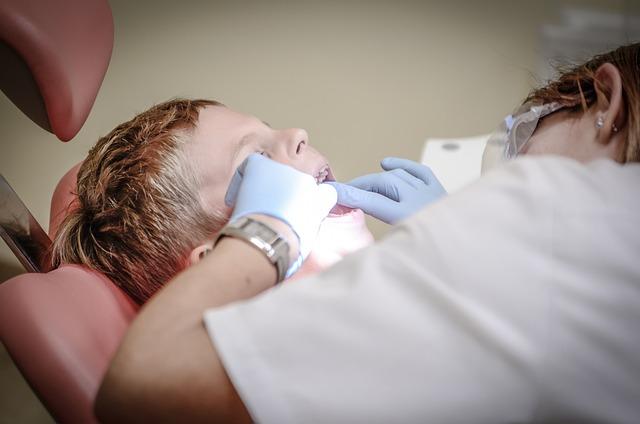Bruxism, the unconscious grinding of teeth, is a common condition. But does it actually lead to tooth decay? Let’s uncover the truth behind this decay dilemma.
1. Understanding Bruxism: The hidden menace affecting your oral health
Bruxism, commonly known as teeth grinding or clenching, is an often overlooked dental condition that can wreak havoc on your oral health. It typically occurs during sleep and can go unnoticed for years, causing a wide range of problems if left untreated. Let’s delve into this hidden menace and gain a clearer understanding of its impact.
The Causes:
- Stress and anxiety
- Misaligned teeth
- Medication side effects
- Temporomandibular joint disorder (TMJ)
The Effects:
- Worn-down tooth enamel
- Fractured teeth
- Chronic headaches and jaw pain
- Tension in facial muscles
- Disrupted sleep patterns
It is crucial to identify the symptoms of bruxism early on, such as dull tooth pain, facial soreness, or recurring headaches, as these can signal underlying teeth grinding habits. Consulting a dental professional who can diagnose and provide appropriate treatment is the first step towards reclaiming your oral health.
2. The Link Between Bruxism and Tooth Decay: Unveiling the decay dilemma
Bruxism, commonly known as teeth grinding, is a condition that affects many individuals and often goes unnoticed. While it may seem harmless, bruxism can have serious implications on dental health, including a strong association with tooth decay. This perplexing dilemma has led researchers to delve deeper into understanding the link between bruxism and tooth decay.
Here are some key points that shed light on this connection:
- Wear and tear: Bruxism involves the grinding or clenching of teeth, which exerts excessive force on the enamel, leading to wear and tear. The weakened enamel becomes vulnerable to tooth decay.
- Reduced saliva flow: Bruxism often causes individuals to breathe through their mouth instead of their nose, resulting in a dry mouth. Saliva plays a vital role in protecting teeth from acid attacks caused by bacteria, so a decrease in saliva flow can contribute to an increased risk of tooth decay.
- Weakened tooth structure: The continuous pressure exerted during teeth grinding can gradually weaken the structure of teeth, making them more prone to decay-causing bacteria.
Understanding the link between bruxism and tooth decay is crucial for both dental professionals and individuals experiencing this condition. Implementing preventive measures, such as using a night guard to protect teeth during sleep or stress management techniques to address the underlying cause of bruxism, can significantly reduce the risk of tooth decay and promote overall dental health.
3. Unraveling the Mystery: How Bruxism paves the way for tooth decay
Bruxism, commonly known as teeth grinding or clenching, can be a real mystery when it comes to understanding its connection to tooth decay. Let’s delve into the fascinating world of bruxism and uncover how it can pave the way for this dental dilemma.
The Process: When someone clenches or grinds their teeth excessively, immense pressure is exerted on the tooth enamel, which is the protective outer layer of the teeth. Over time, this habitual grinding weakens and damages the enamel, leaving teeth vulnerable to decay. Moreover, bruxism can cause tiny cracks and fractures in teeth, providing a conducive environment for bacteria to thrive.
The Saliva Factor: Saliva plays a significant role in preventing tooth decay as it neutralizes harmful acids, remineralizes enamel, and washes away food particles. Unfortunately, bruxism can disrupt the saliva flow, leading to saliva deficiency. This deficiency prevents the mouth from effectively fighting off decay-causing bacteria and makes teeth more susceptible to cavities.
The Grinding Conundrum: While the connection between bruxism and tooth decay is clear, it’s essential to uncover the underlying causes of teeth grinding. Factors such as stress, anxiety, misaligned bite, or sleep disorders can contribute to bruxism. Addressing and managing these root causes can be a crucial step in preventing both bruxism and the subsequent tooth decay.
4. Bruxism’s Toll on Dental Health: Exploring the connection to tooth decay
Bruxism, commonly known as teeth grinding, can take a significant toll on dental health by contributing to tooth decay. The connection between bruxism and tooth decay may not be immediately evident, but the repetitive clenching and grinding of teeth can lead to various oral health issues. Here are some of the ways in which bruxism affects our teeth:
- Enamel wear: Bruxism exerts excessive force on the teeth, causing the protective enamel to wear down over time. As the enamel weakens, the teeth become more vulnerable to decay.
- Microfractures: The intense pressure exerted during teeth grinding can result in small cracks, known as microfractures, in the tooth structure. These tiny fractures provide an entry point for bacteria, leading to tooth decay.
- Changes in tooth position: Persistent bruxism can gradually shift the position of the teeth, altering their alignment. This misalignment can make it challenging to maintain proper oral hygiene, increasing the risk of decay.
- Dry mouth: Many individuals who grind their teeth are more likely to experience dry mouth, a condition characterized by reduced saliva production. Saliva helps neutralize acids and wash away harmful bacteria, so a lack of it can contribute to tooth decay.
Understanding the connection between bruxism and tooth decay highlights the importance of addressing teeth grinding to preserve dental health. If you suspect you have bruxism, consult with a dental professional who can provide guidance and recommend appropriate treatment options.
5. Unveiling the Decay Dilemma: Is Bruxism silently eroding your teeth?
Bruxism, the habitual and unconscious grinding or clenching of teeth, has become a widespread concern in dental health. While it may seem like a harmless habit, bruxism can have detrimental effects on your teeth and overall oral health. Understanding the decay dilemma caused by bruxism is crucial in order to combat it effectively.
Effects of Bruxism on Teeth:
- Enamel Erosion: The constant grinding motion puts excessive pressure on your teeth, leading to the wearing down of enamel. This erosion exposes the vulnerable dentin layer, increasing the risk of tooth sensitivity, and decay.
- Fractures and Cracks: The excessive forces exerted during bruxism can cause chips, fractures, or even complete cracks in your teeth. These openings provide a breeding ground for harmful bacteria, accelerating decay.
- Temporomandibular Joint Disorders (TMD): Bruxism can strain your jaw joints, leading to TMD, which in turn can cause further tooth wear, sensitivity, and pain.
Prevention and Treatment:
- Wear a Night Guard: Wearing a custom-made night guard can help protect your teeth from the harmful effects of bruxism, reducing pressure and minimizing enamel erosion.
- Stress Management: As stress is often a major contributor to bruxism, practicing stress-management techniques such as exercise, relaxation exercises, and therapy can help alleviate the habit.
- Visit your Dentist Regularly: Regular dental check-ups are essential in identifying and addressing bruxism early on. Your dentist can provide tailored treatment plans and monitor any potential dental concerns caused by bruxism.
By acknowledging the impact of bruxism on tooth decay, you can take proactive steps towards preserving your dental health. Don’t let this silent erosive habit erode your beautiful smile.
6. Decoding the Dental Predicament: Bruxism as a catalyst for tooth decay
Bruxism, commonly known as teeth grinding, is a condition that affects a significant number of individuals. This unintentional habit involves clenching or grinding the teeth, often during sleep. While its direct effects are often associated with jaw pain and headaches, further consequences extend beyond the realms of discomfort. In fact, bruxism can serve as a catalyst for tooth decay.
Beneath the surface, tooth decay can silently manifest due to the trauma inflicted upon teeth during bruxism episodes. The constant friction and pressure can wear down the protective enamel layer, leaving the teeth vulnerable to decay. Additionally, the excessive force exerted can lead to microfractures and chipping, further compromising the integrity of the teeth. When combined with the presence of harmful bacteria in the mouth, the perfect conditions for cavities are created.
It is important to be aware of the link between bruxism and tooth decay, as early intervention can prevent future dental predicaments. Your dentist may recommend a variety of treatment options, depending on the severity of your bruxism. These can range from simple lifestyle changes such as stress reduction techniques, to the fabrication of a custom mouthguard that provides a cushioning effect and protects the teeth during grinding episodes. Taking proactive measures can not only alleviate the symptoms of bruxism but also safeguard your dental health in the long run.
7. Grinding Away at Your Smile: How Bruxism contributes to tooth decay
Bruxism, commonly known as teeth grinding, is a habitual condition that can wreak havoc on your smile and lead to tooth decay. This continuous grinding and clenching of the teeth often occurs during sleep or times of stress, putting excessive pressure on the teeth and jaw.
How does bruxism contribute to tooth decay? Here are a few key ways:
- Wearing down enamel: The continuous grinding motion gradually erodes the protective enamel layer of your teeth, leaving them vulnerable to decay.
- Microfractures: The intense pressure exerted during grinding can cause tiny cracks or fractures in the teeth, providing an ideal environment for bacteria to thrive and cause decay.
- Increased sensitivity: As enamel wears away, your teeth become more sensitive to hot or cold temperatures, making it uncomfortable to eat or drink certain foods, leading to potential nutritional deficiencies.
Preventing tooth decay caused by bruxism is vital for maintaining a healthy smile. If you suspect that you are grinding your teeth, consult with your dentist who may recommend a custom-made nightguard to protect your teeth while you sleep. Additionally, practicing stress-reduction techniques and avoiding foods and drinks that can further damage your teeth can help mitigate the effects of bruxism.
8. The Double Whammy: Bruxism and tooth decay – an unholy alliance
Bruxism, commonly known as teeth grinding, is a condition that affects millions of people worldwide. While it may seem harmless, bruxism can actually lead to serious dental problems, especially when combined with tooth decay. This unfortunate alliance can wreak havoc on your oral health and should not be ignored.
So, what exactly is the double whammy of bruxism and tooth decay? Let’s break it down:
- Bruxism: This involuntary grinding or clenching of teeth can occur while awake or during sleep. It puts excessive pressure on your teeth, wearing down the enamel and causing tooth sensitivity, fractures, and even tooth loss.
- Tooth Decay: Also known as dental caries or cavities, tooth decay results from the breakdown of tooth structure due to the acids produced by bacteria in your mouth. This decay can lead to pain, tooth sensitivity, and eventually, tooth loss.
When bruxism and tooth decay join forces, the consequences can be severe. The grinding action of bruxism can speed up tooth decay by damaging the enamel, making it easier for bacteria to penetrate the tooth. Additionally, the excessive pressure from bruxism can weaken your teeth, making them more susceptible to decay. On the flip side, tooth decay can worsen bruxism by altering the shape and alignment of your teeth, further exacerbating the grinding problem.
9. A Closer Look at the Connection: Bruxism’s role in the tooth decay conundrum
Bruxism, commonly known as teeth grinding or clenching, has long been associated with dental problems such as tooth decay. Understanding the connection between bruxism and tooth decay is crucial in better addressing the oral health concerns of individuals suffering from this condition. By delving deeper into this connection, we can shed light on how bruxism exacerbates the tooth decay conundrum.
The role of bruxism in tooth decay:
- Increased tooth erosion: The excessive force exerted during teeth grinding or clenching accelerates tooth erosion, making the enamel more susceptible to decay-causing bacteria.
- Weakened tooth structure: The repeated grinding motion weakens the structure of the teeth over time, leaving them more prone to developing decay.
- Fractured tooth surfaces: Bruxism can result in the fracturing of tooth surfaces, creating crevices and rough areas where harmful bacteria can accumulate, leading to decay.
Preventing tooth decay in individuals with bruxism:
- Wear a nightguard: A custom-fit nightguard is essential in minimizing the impact of bruxism on tooth decay by providing a protective barrier between the teeth.
- Maintain good oral hygiene: Regular brushing with fluoride toothpaste and flossing help remove plaque and reduce the risk of decay.
- Limit acidic and sugary foods: Acidic and sugary foods increase the acidity in the mouth, promoting tooth decay. Limiting their consumption is beneficial for individuals with bruxism.
Understanding the relationship between bruxism and tooth decay empowers dental professionals to develop comprehensive treatment plans that address both conditions effectively. By implementing preventive measures and receiving regular dental check-ups, individuals with bruxism can minimize the detrimental effects on their oral health, ultimately leading to a healthier and happier smile.
10. Restoring Harmony: Strategies to combat Bruxism and prevent tooth decay
Bruxism, commonly known as teeth grinding, can not only lead to jaw pain and headaches, but it can also result in tooth decay and other oral health issues. However, fear not! There are effective strategies that can help you restore harmony to your jaw and prevent tooth decay caused by bruxism.
1. Dental Night Guards: A dental night guard is a custom-made appliance that is worn while sleeping. It acts as a barrier between your upper and lower teeth, preventing them from grinding against each other. Night guards are comfortable to wear and can significantly reduce the impact of bruxism on your teeth and jaw.
2. Stress Management Techniques: Stress is often a major contributor to teeth grinding. Learning stress management techniques such as deep breathing exercises, meditation, or yoga can help alleviate the tension that leads to bruxism. By incorporating these techniques into your daily routine, you can not only reduce teeth grinding but also promote overall well-being.
3. Avoiding Stimulants: Stimulants like caffeine and alcohol can worsen the symptoms of bruxism. Cutting down on these substances, especially before bedtime, can help decrease teeth grinding. Additionally, it is advisable to limit the consumption of hard or chewy foods that require excessive jaw movement, as they can exacerbate the effects of bruxism.
In conclusion, while bruxism itself may not directly cause tooth decay, it can significantly contribute to its development. Regular dental checkups, a well-balanced diet, and the use of a mouthguard can help mitigate the risks associated with teeth grinding. Remember, early detection and timely treatment are crucial to maintaining optimal oral health.



